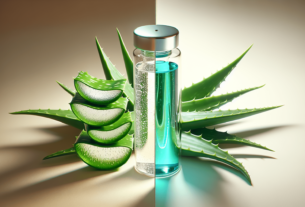What if caring for your skin could be as simple and enjoyable as settling down with a beloved novel? The journey of aging brings about a narrative all its own, and your skin shares in that story.

Understanding Mature Skin
Mature skin is quite different from the skin you may have had during your earlier years. With the passage of time, your skin undergoes a series of transformations due to factors like hormonal changes, environmental exposure, and your unique genetic makeup. The idea is not to shy away from these changes, but to embrace and manage them with knowledge and care.
The Characteristics of Mature Skin
You might notice certain hallmark characteristics of mature skin. These may include:
- Fine Lines and Wrinkles: Mostly evident around the eyes, mouth, and on the forehead.
- Dryness: The skin’s ability to retain moisture diminishes, leading to a somewhat parched appearance.
- Loss of Elasticity: A decrease in collagen production causes the skin to lose its youthful bounce.
- Pigmentation Changes: Dark spots or hyperpigmentation may appear due to the cumulative sun exposure over the years.
Understanding the Needs of Mature Skin
Your mature skin has unique needs that differ significantly from those of younger skin. These needs focus on hydration, collagen boosting, and protecting against further damage.
Essential Skincare Tips for Mature Skin
Knowing how to care for your skin as it matures can prolong its youthful appearance and keep it healthy. Here are some well-researched tips you can incorporate into your skincare routine.
Hydration is Key
Dryness is a primary concern for mature skin. Hydrated skin tends to look more vibrant and youthful. Choosing the right moisturizer is crucial.
Types of Moisturizers
| Type | Description | Best For |
|---|---|---|
| Creams | Thicker and richer; best for night use. | Extremely dry skin |
| Lotions | Lighter; good for daytime use. | Normal-dry skin |
| Serums | Concentrated with active ingredients. | Targeted issues |
| Oils | Provide an extra layer of moisture. | Very dry skin |
When selecting a moisturizer, look for ingredients such as hyaluronic acid, glycerin, and ceramides. These ingredients help to lock in moisture and maintain the skin’s barrier function.
Gentle Cleansing
Mature skin requires gentle handling, especially during cleansing. Using harsh cleansers can strip away natural oils and exacerbate dryness.
Choosing a Cleanser
Opt for sulfate-free cleansers that are designed for sensitive or mature skin. Ingredients like aloe vera, chamomile, and cucumber can soothe and hydrate while cleansing.
Routine: Use lukewarm water and a gentle circular motion to apply the cleanser. Pat dry with a soft towel instead of rubbing, which can irritate the skin.
Sun Protection
Protection from UV rays is essential at every age, but it becomes even more crucial as your skin ages. Over time, sun exposure can lead to wrinkles, pigmentation changes, and even skin cancer.
Using Sunscreen
Select a broad-spectrum sunscreen with an SPF of at least 30. Apply it daily, even on overcast days. Don’t forget areas like your neck and hands, which are often exposed to the sun.
Tip: Reapply every two hours if you are spending extended periods outdoors.
Boosting Collagen Production
Collagen is the protein responsible for skin elasticity and firmness. As you age, collagen production decreases, so supporting it can help maintain your skin’s structure.
Approaches to Boost Collagen
- Topical Retinoids: Retinoids can help in promoting collagen production.
- Vitamin C Serums: They help in collagen synthesis and provide antioxidant protection.
- Peptides: These act as building blocks for new collagen in the skin.
Routine: Incorporate these products gradually. Starting with a retinoid might cause some irritation, so it should be used every other day initially.
Nighttime Skincare Routine
Nighttime is when your skin goes into repair mode. Hence, having a targeted nighttime skincare routine can be beneficial.
Steps for Nighttime Care
- Cleanse: Remove makeup and impurities.
- Toner: Use a hydrating toner to prepare your skin for further treatment.
- Serum: Apply a repairing serum, such as one with peptides or hyaluronic acid.
- Moisturizer: Use a rich, nourishing cream.
- Eye Cream: Since the skin around your eyes is delicate, a specialized eye cream can help address fine lines and puffiness.
Dietary Considerations
What you put inside your body impacts your skin significantly. A diet rich in nutrients will help your skin remain resilient and healthy.
Foods for Healthy Skin
Consider incorporating the following into your diet:
| Food Type | Beneficial Ingredients | Skin Benefits |
|---|---|---|
| Fruits | Vitamin C, antioxidants | Collagen synthesis, protection |
| Vegetables | Beta-carotene, Vitamin A | Cell regeneration |
| Fish | Omega-3 fatty acids | Hydration, anti-inflammatory |
| Nuts and Seeds | Vitamin E, Selenium | Antioxidant properties |
| Water | Hydration | Plump and moist skin |
Supplements
In addition to dietary changes, certain supplements can support skin health.
Recommended Supplements
- Collagen Peptides: To support skin structure.
- Hyaluronic Acid: To enhance skin’s ability to retain moisture.
- Antioxidants: Vitamins C and E can help protect the skin from oxidative stress.
Consultation: Always consult with a healthcare provider before starting any new supplements.
Avoiding Irritants
Mature skin is often more susceptible to irritation. Hence, it’s essential to be cautious about what products you use and how you treat your skin.
Harsh Chemicals
Avoid products with harsh chemicals like sulfates, parabens, and synthetic fragrances. These can strip your skin of its natural oils and lead to irritation.
Reading Labels
Look for terms like “paraben-free,” “sulfate-free,” and “fragrance-free” on skincare products. It’s beneficial to opt for products with natural and organic ingredients.
Physical Treatments
Aggressive physical treatments, such as harsh scrubbing or abrasive face masks, should also be avoided. These can damage the delicate skin barrier and lead to irritation.
Alternatives
Seek out gentle exfoliating options, such as enzymatic peels or mild chemical exfoliants like lactic acid, which can smooth your skin without the harshness of scrubbing.
Professional Treatments
Sometimes, professional help can be advantageous for addressing specific concerns. Several treatments are particularly beneficial for mature skin.
Facials
Regular professional facials can help maintain skin health and address specific issues such as dryness and dullness.
Types of Facials
| Facial Type | Benefits |
|---|---|
| Hydrating Facial | Adds moisture and improves elasticity |
| Anti-Aging Facial | Targets fine lines and boosts collagen |
| Brightening Facial | Reduces dark spots and gives radiance |
Chemical Peels
Mild chemical peels can help remove dead skin cells, revealing fresher, more radiant skin underneath. It’s essential to choose mild peels like lactic or glycolic acid peels to avoid damaging mature skin.
Microneedling
Microneedling involves tiny punctures in the skin to boost collagen production. This treatment can improve the skin’s texture and reduce the appearance of fine lines and wrinkles.
Laser Treatments
Laser treatments can target specific concerns such as pigmentation and loss of elasticity. It’s crucial to consult with a professional to determine the best course of action for your skin type and concerns.
Emotional Well-Being and Skincare
One cannot ignore the impact of emotional well-being on skin health. Stress and anxiety can exacerbate skin issues, while a calm mind can lead to more vibrant skin.
Mindfulness Practices
Incorporate mindfulness practices into your daily routine, paying attention to your skin’s needs without judgment. This creates a more compassionate approach to your skincare.
Sleep
Quality sleep is vital for letting your skin repair and regenerate. Aim for at least 7-8 hours of quality sleep each night.
Hint: Create a calming bedtime routine, avoiding screens and indulging in relaxing activities like reading or listening to soft music.
The Role of Genetics
While many factors influencing your skin health are within your control, genetics also play a significant role. Understanding your genetic makeup can help tailor your skincare routine.
Skin Analysis
Consider professional skin analysis to understand your skin’s specific needs based on your genetic makeup. This can guide you to adopt a more targeted skincare routine.
Note: You might have inherited specific skin issues like sensitivity or pigmentation, which can affect your routine and product choices.
Conclusion
Caring for mature skin involves a balanced approach that combines gentle, nourishing products, healthy lifestyle choices, professional treatments when necessary, and a heartfelt commitment to self-care. Aging is not an enemy but a natural process that can be managed beautifully with the right knowledge and practices.
By embracing the needs of your mature skin, you are not only preserving its health and beauty but also celebrating the wisdom and experiences it symbolizes. Here’s to your journey of radiant, resilient skin that reflects the richness of your life’s story.



